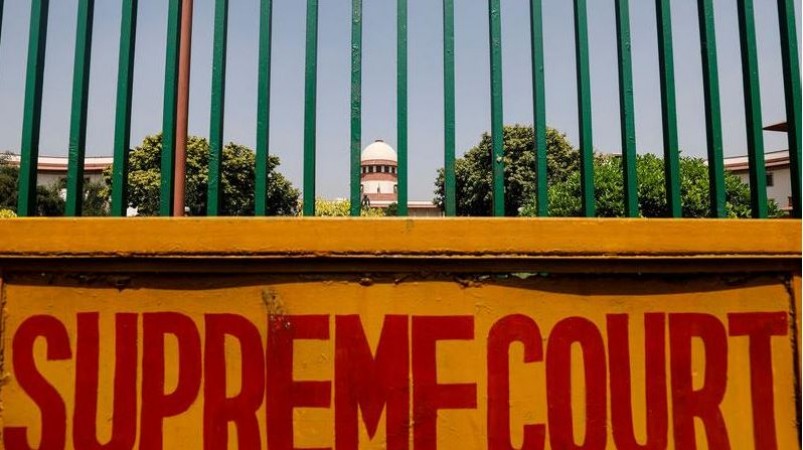
NEW DELHI: The government of Tamil Nadu has told the Supreme Court there is nothing illegal in the acts of missionaries spreading Christianity as Article 25 of the Constitution guarantees every citizen the right to propagate his religion.
"Conversion of poor people to other religions by intimidating, threatening, deceiving, luring through gifts and also by using black magic and superstition are not reported in Tamil Nadu," the M.K. Stalin government said. The DMK government stated in its affidavit to a PIL brought by attorney Ashwini Kumar Upadhyay: "As far as Tamil Nadu is concerned, no incidences of forced conversion have been documented in the previous many years. Even according to the petitioner, the claims made by the petitioner "do not apply to the State of Tamil Nadu because they are alleged to have only occurred in certain tribal areas in Madhya Pradesh, Odisha, and India's Hindi Belt."
The state administration argued that since Article 25 of the Constitution provides each citizen the freedom to practise his or her faith, the act of missionaries evangelising cannot be viewed as a violation of the law in and of itself. However, "their act of promoting their religion has to be viewed seriously if it is contrary to public order, morality, and health, as well as to the other provisions of Part III of the Constitution," it said.
The DMK government said that people are free to follow whatever religion they desire. The Constitution does not grant someone the fundamental right to convert another person into their own god. However, it grants everyone the freedom to spread their religion. The Constitution also does not forbid anyone from converting to the faith of their choice. It would not be appropriate for the government to place restrictions on people's personal beliefs and privacy, the statement stated, and individuals of the nation should be free to choose their faith.
The state government said that the petitioner had levelled serious charges against it and that it had made it a priority to drop the conversion theory from the investigation into Lavanya's strange death.
"The petitioner, who is a member of the Bharatiya Janata Party, has made an attempt to turn the court case into a political conflict by injecting political ideology into the discussion. All of the accusations levelled against the Tamil Nadu government are politically motivated. There haven't been any cases of forced faith conversion in Tamil Nadu, it claimed.
The DMK government said that it is the state's duty to take action against anyone who intentionally and maliciously seeks to offend someone's religious sentiments by disparaging their religion or religious beliefs.
The freedom of religion is one of the rights that the Indian Constitution guarantees, according to the state government. Every Indian citizen enjoys the right to religious freedom, or the freedom to practise any religion, as the country is secular. It read, "The Constitution provides to every citizen the liberty to follow the faith of their choosing. There are many different religions practised in India. Every citizen has the right to peacefully practise and disseminate their faith, in accordance with this fundamental freedom. Article 21 of the Constitution establishes the right to adhere to a particular religion as an unalienable right.
The anti-conversion laws have been passed by many states, and some of them are still in force. According to the Tamil Nadu government, there is no information on convictions under the various anti-conversion laws of the states, and the laws are prone to being abused against minorities.
The Tamil Nadu Prohibition of Forcible Conversion of Religion Act, 2002 (Tamil Nadu Act 56 of 2002) was approved by the State of Tamil Nadu in 2002. The Tamil Nadu Prohibition of Forcible Conversion of Religion (abolish) Act, 2006 (Tamil Nadu Act 10 of 2006), however, was passed to abolish the law in response to public outcry. The Gujarat Freedom of Religion Act, 2003 was passed by the State of Gujarat in 2003. States in Jharkhand and Uttarakhand, respectively, approved anti-conversion legislation in 2017 and 2018. The Karnataka Protection of Right to Freedom of Religion Bill was approved by the Karnataka State Legislative Assembly in 2021, according to the state government.
The state government responded to Upadhyay's request by stating: "The prayers sought by the petitioner in the present writ petition do not only attack a specific community with intentions to divide the society through hate, fueling religious intolerance in the country, and bringing disharmony in the society. Upadhyay filed a petition with the Supreme Court asking it to provide a ruling that violations of Articles 14, 21, and 25 include coercive religious conversion, coercive religious conversion through threats, intimidation, and coercive religious conversion through the use of gifts and money rewards.